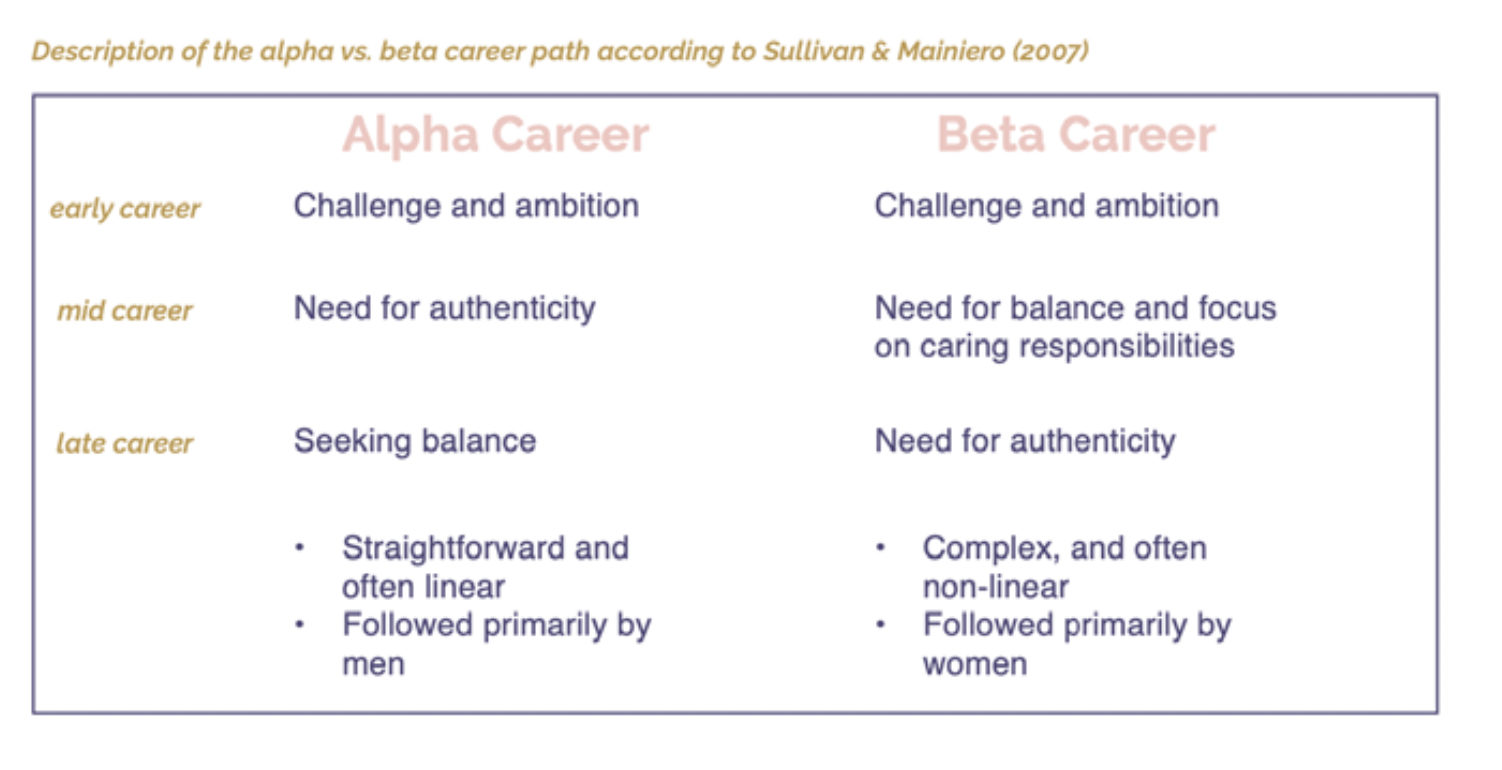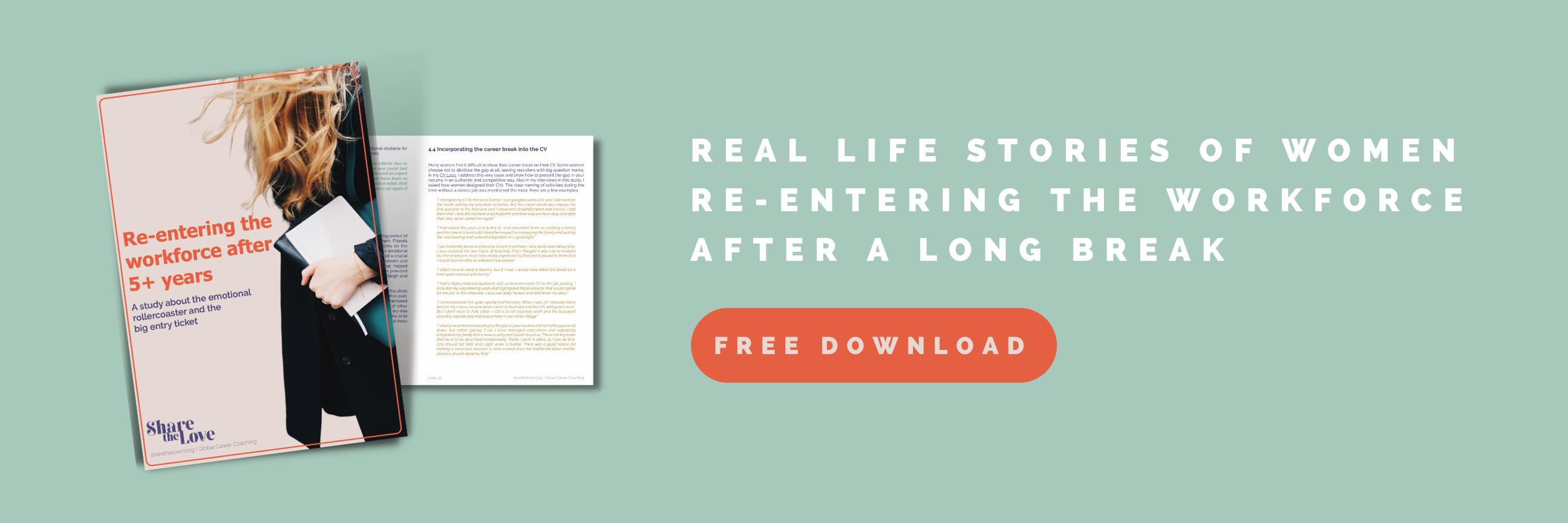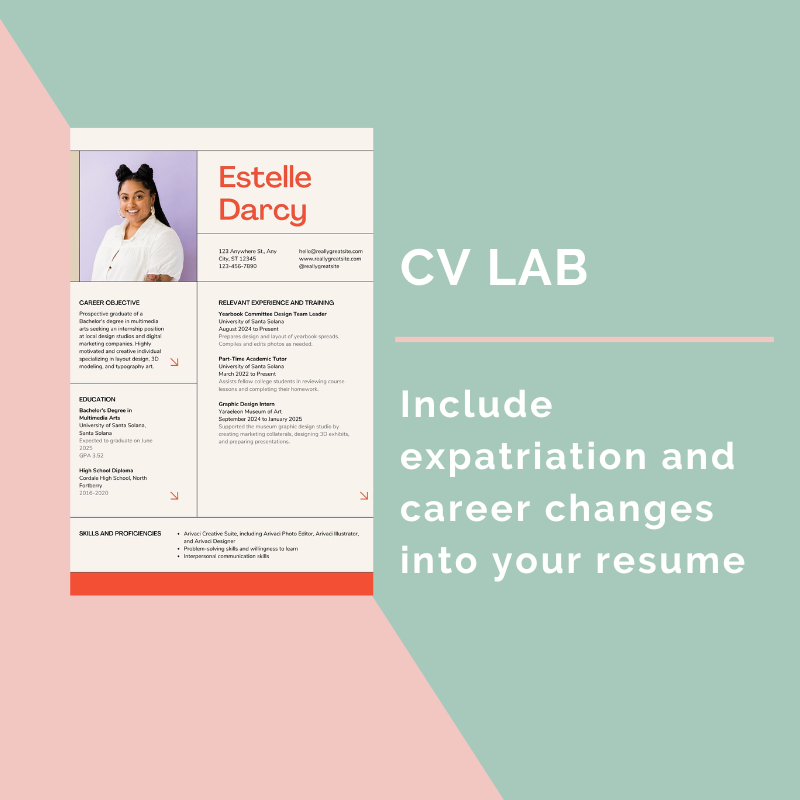
Why do women decide to leave the 9 to 5
About 62% of the workforce has taken a career break in their professional history at some point (LinkedIn, 2022). While in the past, career breaks have been a huge stigma and often led to career breakers not re-entering the workforce at all, we are experiencing a new era. But why is it that especially female employees, committed to their profession and boosting recognition and acknowledgment, are deciding to take a career break? In this blog post, I am shedding some light on the reasons for taking a career break and its implications.
The concept of alpha & beta careers
While most of the time, men and women start with equal passion and motivation in their professional life, there comes a time in women‘s lives when they start to reflect on whether their career is still matching their overall idea of life. While men often follow a so-called alpha career, women are sticking to the so-called beta career (Sullivan and Mainiero, 2007).
Unlike the linear ‘alpha’ career pattern, women tend to follow a ‘beta’ career pattern that is more complex and non-linear by nature. “The ‘beta’ career pattern is driven by challenge and ambition in the early career, followed by the need for balance and focus on caring responsibilities during the mid-career and finally seeking authenticity in the late-career. The ‘alpha’ career pattern is characterized by challenge and ambition in the early career, followed by the need for authenticity during the mid-career and then seeking balance in the late-career phase (Sullivan and Mainiero, 2007). So the alpha career can be described as more linear and straightforward, while the beta career is more flexible and allows for different work-life balances.

The current state of female employment
While we experience increased equality at work (in some countries) there are still certain life events that trigger women to take a break from the traditional job market. Especially the recent years of a worldwide pandemic have made the increased struggle to continue a linear career for women visible. According to a study in the UK, “the number of unpaid carers increased by 4.5 million by June 2020, the majority of whom were women. Women are also more likely to be caught in the so-called ‘sandwich generation, fulfilling the responsibility of caring for elderly relatives as well as their children.” (Vodafone, 2021),
Deloitte (2022) was performing a new study interviewing 5,000 women in 10 countries about their job situation to assess the current state of female employment. Here is an excerpt of some of the key takeaways of the study that are painting a clear picture of the challenges for women in the workplace and also explain why women are partially deciding to reduce hours or to quit entirely even without a specific trigger:
Widespread burnout fueled by rising stress levels:
- Every second woman in the study by Deloitte stated that her stress levels are increasing. Every fourth woman interviewed felt burned out. As a consequence, one-third of the respondents have taken time off to take care of their mental health.
The great resignation is set to continue:
- Every second woman in the study plans to leave her current employer in the next two years and the overall satisfaction index is dropping steadily. Next to burnout, the lack of opportunities to advance has been mentioned most often.
Despite widespread shifts in working arrangements, flexibility is not a reality for many women:
- While some companies have introduced more flexible working policies over the course of the pandemic about 94% of women surveyed believe that requesting flexible working will affect the likelihood of getting promoted and 90% believe their workloads won‘t be adjusted accordingly if they request flexible-working options. While many women decided to reduce hours or shift to part-time during the pandemic they not only suffered financially but also mentally and were less motivated to work.
Hybrid working:
- An opportunity for change— but challenges exist: Almost 60% of women who work in hybrid environments feel they have been excluded from important meetings, and almost half say they do not have enough exposure to leaders, a critical enabler of sponsorship and career progression. So while hybrid work enabled a better work-life balance the aftereffect on career progression is in question.
Harassment and microaggressions are on the rise—and often go unreported:
- About 60% of women surveyed have experienced harassment. Speaking up about it is still a struggle for most women. 93% believe reporting non-inclusive behaviors will negatively impact their careers, and most feel that their employers won’t take action even if they do report these behaviors.
According to a study in the UK, “the number of unpaid carers increased by 4.5 million by June 2020, the majority of whom were women. Women are also more likely to be caught in the so-called ‘sandwich generation, fulfilling the responsibility of caring for elderly relatives as well as their children.” (Vodafone, 2021),

Reasons for women to drop out
During the pandemic, certain challenges for women could be seen as if under a burning glass. Motherhood and the high proportion of unpaid work were even more difficult to reconcile due to limited childcare options. But even without a pandemic, there are specific triggers that drive women around the world to take a career break.
Such life events include:
- Becoming a mum
- The challenge of facilitating or financing daycare
- Moving countries (often initiated by the partner’s career)
- Focus on work-life balance (eg. avoiding long-distance relationships)
I interviewed several women who returned to the workplace after an extended break (between 6 to 23 years). When talking to these women, all of the triggers such as moving countries or becoming a mother have been mentioned as crucial turning points in their career planning. Often there was not this one reason to leave the workplace but a combination of different life events and the outlook on family dynamics over the next couple of years. Many took the decision to leave the workplace proactively. Also, there was a combination of moving countries and becoming a mum leading to the thought that motherhood is potentially on the horizon and entering a competitive foreign job market was not a priority. For others, the thought of shifting almost the whole salary to childcare just to be able to work did not feel right. Also not feeling the societal pressure of being a working mum led to the decision to leave the workforce.

In her own words: Quotes from the Re-entry study
“In the beginning, it was a liberating blow because I no longer had any desire to work. In {country}, I became a mother quite quickly and was therefore very busy. This pushed my professional ambitions very far back.”
“We moved abroad and first I did not have any work permits and then later my child was born and there was no real thought about going to work. And when we moved to {country}, the language was another added barrier for me to work.”
“Back then my partner took a break as well so we traveled the world for a year and when we were coming back I gave birth to my daughter. I was totally consumed by my motherhood then. There was no good support for working mothers and I knew my salary would be invested into childcare by 100% so I decided to stay at home with my daughter.”
“First it was the pregnancy with our second child which was the reason for the exit and then it was extended a bit by our expat time in {country}. For my husband‘s job (we were not sent but initiated it ourselves) we lived together in {country} for six years.”
…and then came the desire to have children. At that time, it was totally normal to quit my job and concentrate on the children. Maybe you wouldn‘t do that today, where you have to perform all roles at the same time and at best still look good. Then we went abroad and the question of my own employment did not arise at first.”
“In the beginning, with two children, there was no room to think about my career. In {country}, I was able to focus on my role as a mother with a clear conscience. Everyone around me was also at home. We had good financial security and I didn‘t have a work permit anyway. No one ever questioned it. That helped me a lot back then. Today you will always have to explain yourself, but at that time it was normal.”
Is there a return after a longer career break?
LinkedIn just released a new feature in 2022 giving employees and potential candidates the chance to state their career break with confidence in their profile. I have written about this new feature and the potential impact on women returning to the job market here on the blog.
While women are still facing the realistic chance that a career break will impact future salary and job responsibilities, taking the break is becoming more the norm than the exception. How significant the stigma of a career break is, will be seen over the course of the next decade. While changes such as the LinkedIn career break add-on are really helping to change the narrative, about 60% of people believe there is still a stigma attached to career breaks (HBR, 2022). Also, the definition of a career break varies a lot. In some cultures, a break of several months is already seen as leaving the workforce while in other cultures splitting the devotion for work and family in different centuries is more the norm. As a career coach, reflecting on my clients, the conversations I have with HR representatives, and the interviews with role models in that field, I argue that a career break most definitely closes a door to a certain part of your career but many times it opens a way better fitting door for a future career. Many of my clients have chosen a career out of chance or coincidence. The decision to re-enter the workforce, however, is much more self-determined. For those who can allow themselves (financially) to take the time for clear reflections on their own values, strengths, and career drivers there is a much more fulfilling career waiting on the horizon than they left. And that is something to really look forward to! There is liberation and excitement in the fact that it is a conscious decision to make!
If you need help in this process I am more than happy to talk about your current situation and what the future might bring! I have created a well-structured 3-months coaching program in which I will guide you from WHAT to HOW. Book a free discovery call in my calendar or check out my program here. I am here to support you on this journey!
If you want to know more about the interviewed women re-entering the workforce you can download the whole study for free here. All women are sharing openly about their struggles and the emotional rollercoaster and they also share their personal approaches to how they got back to work in the end. Enjoy reading!

Do you know anyone who might find this helpful? Share the Love by sharing this article
Ebook for the accompanying partner
Quitting your job and joining your partner abroad does not need to end your professional career. Learn what options you have and how to define what you really want during your time abroad. Make it to your own personal journey and get the most out of it!














